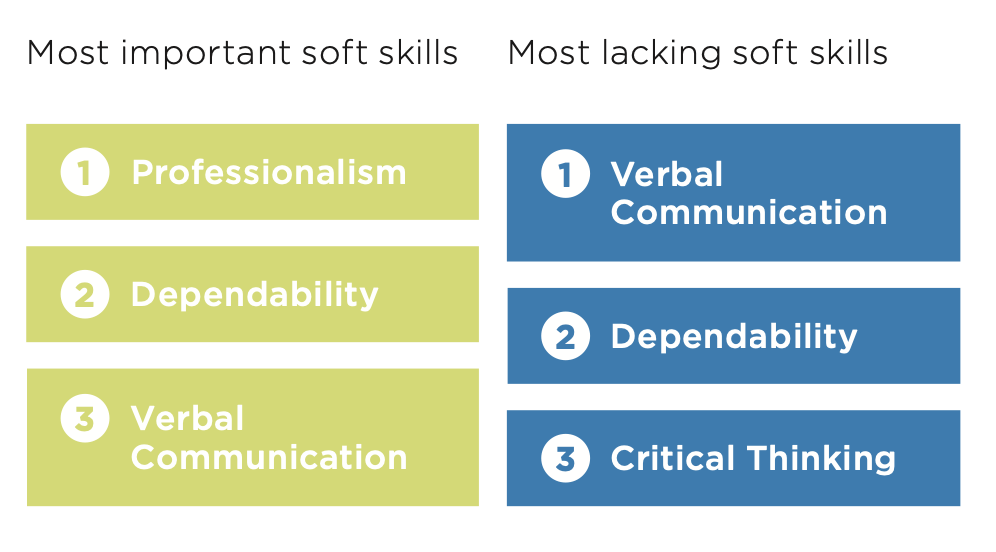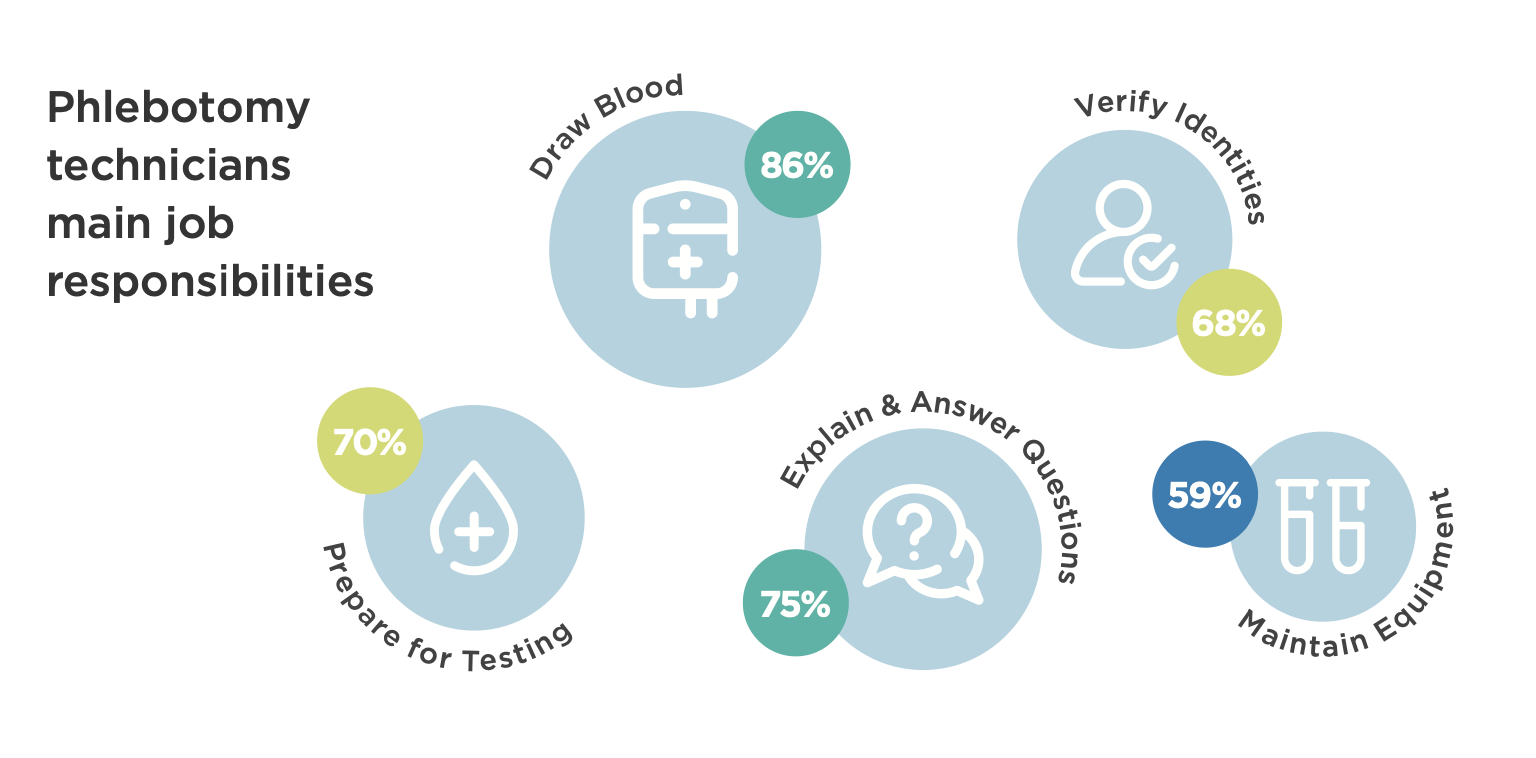Phlebotomy technicians must have foundational knowledge and skills, sometimes called hard skills, to draw blood and perform related tasks. As an important member of the care team, it's also essential that professionals in this role exhibit strong soft skills. In our recent survey of employers in the 2020 Industry Outlook, the most important soft skills for phlebotomy technicians include professionalism, dependability, and verbal communication.

When are these soft skills needed in the role of the phlebotomy technician?
Soft skills enable you to navigate your environment and work well with team members and patients. Here are some ways the top three desired soft skills can show up in the phlebotomy technician profession.
Professionalism shows patients that you are skilled, competent, and trustworthy—important qualities when needles are involved! Exuding professionalism goes a long way in giving patients confidence in your abilities.
Dependability is important in any profession, because employers need to know you'll be present and timely when you're needed, especially in a busy lab, medical office or blood donation center. As a phlebotomy technician, dependability is also important when it comes to accuracy and precision.
Verbal communication skills are imperative when it comes to patient interactions. Phlebotomy technicians must be able to clearly explain procedures to their patients, and address their questions and concerns. A lot of patients are uneasy about needles, so a strong verbal communicator can help put patients at ease.

Why are these soft skills important?
As you can see in the graph above, explaining and answering questions is one of the main job responsibilities of a phlebotomy technician. This high level of patient interaction means you can play a huge role in patient satisfaction. Unfortunately, one bad interaction can ruin what was otherwise a positive patient experience. It's human nature to remember the bad over the good.
Patient satisfaction, which is measured in surveys and reviews, is often the number one priority of healthcare institutions. Healthcare workers who possess strong soft skills are contributing not only to the satisfaction of their patients, but also to the success of the healthcare practice.
Soft skills can absolutely be learned. Just like anything, it takes knowledge and practice.
NHA's PersonAbility™ program helps allied health professionals like phlebotomy technicians learn, practice, and develop essential soft skills using the power of virtual human simulation. In this online program, you can learn skills to improve your professionalism and develop your personal brand.


